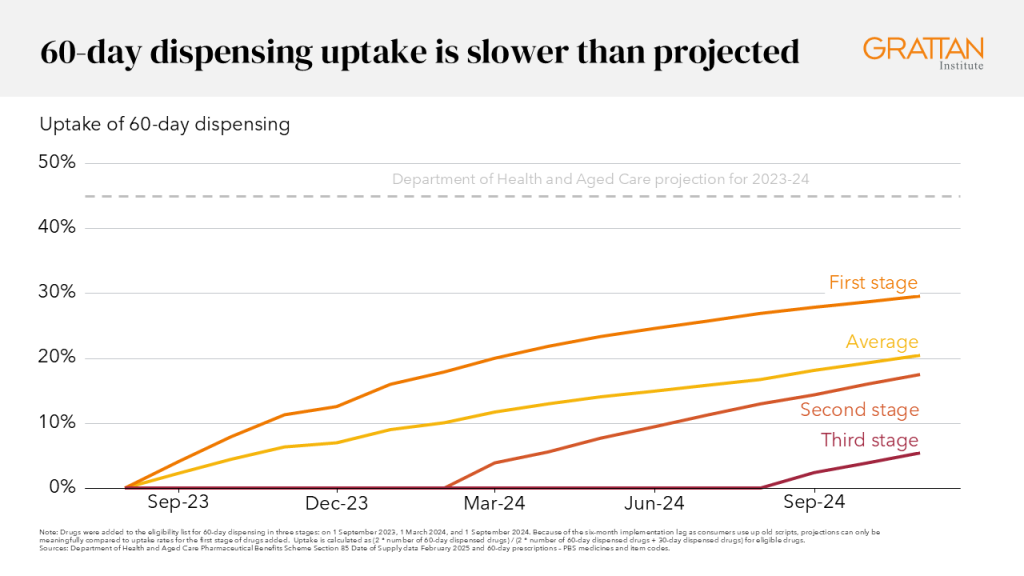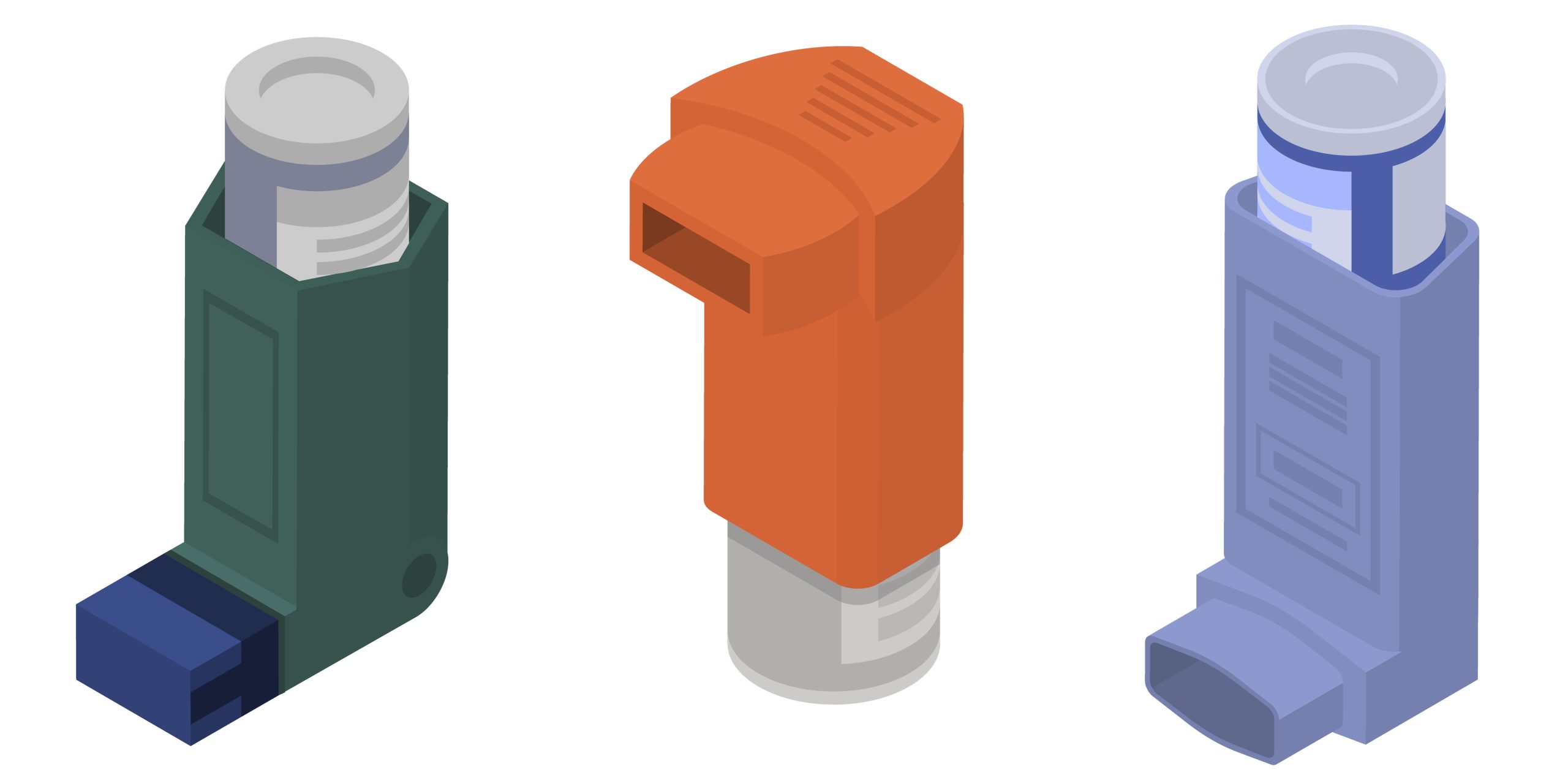Low uptake could be solved as easily as adjusting the default settings on GPs’ practice management systems.
Uptake of 60-day prescribing has been lower than anticipated by the Department of Health and Aged Care, resulting in a $309 million hole in projected savings for patients, according to data from the Grattan Institute.
And the problem may be as simple as GPs’ practice management systems defaulting to 30-day prescriptions just because that’s what the patient has always had.
The policy was introduced in 2023 with the government promising consumers would save up to $190 a year per medicine, thanks to fewer trips to the pharmacist and the doctor for repeat scripts.
But, says the data, so far that promise has not been met.
Researchers Peter Breadon and Wendy Lu have analysed the uptake of 60-day prescribing and, bearing in mind the six-month lag while patients use up existing prescriptions, the results are a letdown.
“In November 2024, 60-day prescribing uptake for drugs in the first stage was 30%,” they reported. “When all stages were considered, the uptake rate reached just 21%.
“In 2023, the department predicted that uptake would be 45% by 2023-24, and 63% by 2026-27 under a full implementation approach.”

The lower than expected uptake has also impacted the savings to both patients and the government, the report found.
“From the introduction of 60-day dispensing in September 2023 to November 2024, we estimate that patients have saved $114 million,” said Breadon and Lu.
“Over the same period, we estimate that the government has saved $141 million. Thus, total savings to date are estimated to be $254 million.
“Under a 50% uptake scenario, we estimate annual patient savings [could have been] $418 million based on total average costs from December 2023 to November 2024 (or an additional $309 million incremental to current savings for December 2023 to November 2024).
“We estimate annual government savings [could have been] $419 million (or an additional $297 million incremental to current savings).”
Part of the issue may be the slow rollout of medicines added to the 60-day dispensing list.
About 300 drugs for chronic health conditions have been added to the eligible drugs list in three tranches – across all medicines eligible for 60-day prescribing, including those added in the second and third stages, just 21% of medicines dispensed were from a 60-day script.
Related
In a commentary published on the Grattan Institute’s website, Breadon and Lu said the low uptake was more about doctors than pharmacists, because the GP who writes the script determines its duration.
“Risks for patients aren’t the problem,” said Breadon and Lu.
“While 60-day prescribing won’t be right for all patients, experts selected the eligible drugs because prescribing them for 60 days is usually appropriate and safe.
“While there’s some variation in 60-day prescribing rates for different medicines, it’s low across the board. That suggests the problem isn’t about GPs being much more cautious with some drugs than with others.
“The culprit is probably inertia.
“GP practice software generates default prescriptions when a patient has had a drug before.
“With most people still getting 30-day prescriptions, that will be the default for most repeat scripts. And many patients might not be aware the new 60-day option is available.”
So, the solution may be as simple as tweaking the practice management system software.
“Providers of GP software should make 60-day prescribing the default for relevant medicines,” said Breadon and Lu.
“The Royal Australian College of General Practitioners, the professional body for GPs, should continue to encourage GPs to write longer scripts.
“Primary Health Networks, the regional bodies responsible for improving primary care, should tell GPs how they compare with their peers, giving a nudge to GPs with low rates of 60-day prescribing.
“Finally, the federal government and consumer groups should run campaigns to inform patients about their options.”





